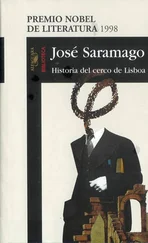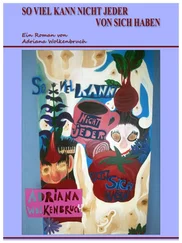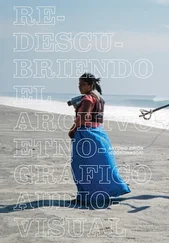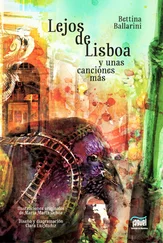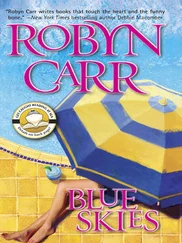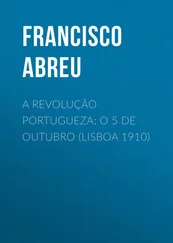My father’s mother lived on Redondo Road, in Jemez Springs. Our destination, some sixty-five miles from Santa Fé. That was why our highway, on that occasion, needed to be attached to others.
Carlos went with June in her green pickup, allowing him plenty of time with his love at first sight. He wanted to talk to her, hear her talking in that funny English of hers, in her elegant Queen’s English, which made him think of jewelry and capes and red velvet. We passed enormous casinos run by the Indians and drove up into the mountains where pine trees grew thankfully, one hundred percent bound to their mountain reality. Much of New Mexico was desert. But not there. We reached Los Alamos and June pulled over to the side of the road. She got out of the car and came to our window.
Los Alamos, she said, you know. And she looked at Fernando and then at me. Did you tell her? We’re going to pass through a security gate. They might pull us over, they might not.
No one asked us to stop at the security gate — in fact, there wasn’t anyone in any of the cabins — and Fernando provided me with the historical connections that I didn’t have, Los Alamos, the Manhattan Project, the atomic bomb, and when he crossed a road called Oppenheimer Drive he explained who Oppenheimer was and said that he had quoted Hindu scripture after the first explosion in New Mexico: Now I am become Death, the destroyer of worlds .
It had snowed in Los Alamos. Amid the pine trees there were pale trails of semi-melted snow. I was wearing my sunglasses with the pink and blue frames, and was thinking of the name Oppenheimer. Heimeroppen. Meroppenhei. Enheioppmer.
Now, this woman, this Florence lady, my father’s mother, is she expecting us?
No, replied Fernando. But I imagine that people show up at her house from time to time. It’s a studio. I don’t know what these things are like. I don’t know any artists.
I imagine her studio as a large room with a really big dirty table and pieces of newspaper everywhere. Maybe she’s hung her favorite poem on the wall. To feel inspired.
Fernando didn’t say anything. He didn’t say what he imagined Florence’s studio would be like. He didn’t say if he imagined anything at all. I went along mentally putting together model grandmothers, like in those children’s books in which you choose the head on one page and the body on another and the feet on another, and you end up with a cowboy with a ballerina’s body and a Martian’s feet.
Florence lived on a dirt road. June and Carlos went ahead in the green pickup, blurred by the cloud of dust that they left behind them and which Fernando and I breathed in.
On one side of the road were rocks and vegetation, climbing a steep slope. On the other side was a low concrete wall, between the road and the drop. Every now and then, a house. After we passed the corner of La Cueva Place (a dead-end road, according to the map), June parked the pickup in front of a stone wall — which didn’t hide, protect or divide the slope, but merely braced it with the tense tranquility of stones.
An entrance, a low gate. My heart was beating wildly and my hands were cold. We rang the bell and a woman in a wool coat came walking through the garden. She didn’t have braids in her hair, nor was it long. It was very short and gray-blonde. There were two small bags under her eyes, and a slightly bigger one under her chin, like a set of ornaments. She wasn’t wearing earrings in her ears, rings on her fingers or a watch on her wrist. Her wool coat had a pulled thread near the collar. There were ceramic sculptures standing among the dry plants in her garden. The first my eyes alighted on was a chicken with human genitals. My Woman Chicken, Florence would say later.
Hellooooo, she said in a smile. And who are you?
Ah, said June, waving her hand in a vague gesture that might include Florence’s house, us, the whole state of New Mexico, half the planet. We’ve come to see your studio. We’ve heard good things about your work and decided to visit. I live in Santa Fé and these are my friends from Colorado.
Florence opened the gate, held out her hand and said Florence.
I looked at her and thought about the children that she might have had. I thought of Florence as a young woman, without the matching bags. I thought of Florence with a swelling belly, her skin stretched and belly-button poking out like an olive, a child completing its pre-natal phases inside.
We crossed the garden of rocks and dry plants and things made of clay. It was as if there was a kind of mistrusting life there. In that garden. Sap hidden behind twiggy stalks, peeking out.
We entered her house and Florence introduced us to her husband. Norbert. (I thought he was my father’s father. Later I found out that he was Florence’s second husband. They had met eight years earlier, when she was visiting Vermont. Eight years earlier, Florence was a widow and had a sister who lived in Vermont. Norbert was Florence’s sister’s neighbor, and was also widowed. And Florence could never live in New England. No wet winters for her. No cloudy days.)
Norbert collected vacuum cleaners. Florence introduced us to him in a loud voice because he was a bit deaf. Norbert seemed fifty percent present. His other fifty percent was somewhere else, somewhere that had nothing to do with us. He moved to and fro, from one of his halves to the other, according to simple personal convenience. He had seven different models of vacuum cleaner, which he kept in a special cupboard in the garage. When we entered the house, he was just finishing vacuuming the couch. More than in a clean house, perhaps, he believed in the cleaning potential present in each vacuum cleaner. He believed in what they were capable of doing. In their good souls, so to speak.
As for Florence, she supplemented Norbert’s fifty percent presence with another fifty percent. She, too, had another half that was elsewhere, doing ballet somewhere in the space over our heads, and she accompanied the dance of her other detached, traveling self with eyes that never stopped moving. But they weren’t nervous eyes, flitting back and forth with no talent for concentration: they were just eyes that undulated, calmly, following some no doubt very beautiful thing that no one else could see. It was the kind of thing that could really bug some people.
I thought that maybe she studied Russian, just for the sake of it, and talked to plants. I thought that maybe she forgot to eat the occasional meal, and at such times Norbert would wander about the house, feeling unhappy and not really sure why he was so hungry.
In her house there was a TV that didn’t work and a telephone that she didn’t answer. From time to time she would listen to the messages on the answering machine, but she didn’t necessarily associate them with any obligation to return calls. There was a gramophone, on which she played operas.
When June had called her a few weeks earlier, it had been like that. A message. A number for Florence to please call back. Florence had listened to the message, registered a group of numbers without any internal logic, and seconds later they had probably broken up like drops of water splattering on the ground, returned to their molecular state, without any other commitment or consequence.
I called a few weeks ago, June said, as Florence was offering us tea (I like to receive everyone that comes to visit my studio with a cup of tea; it’s so nice when people come all the way out here — a smile).
Florence clasped her hand. June’s soft, chubby hand in Florence’s long, knotty hand, with its age spots. Forgive me, my dear. I must have heard your message, I always listen to my messages, at least once a week — a smile — but sometimes I forget to write them down, and then I end up forgetting them. She tapped on her temple with her index finger. I’m a little absent-minded, she said.
Читать дальше

